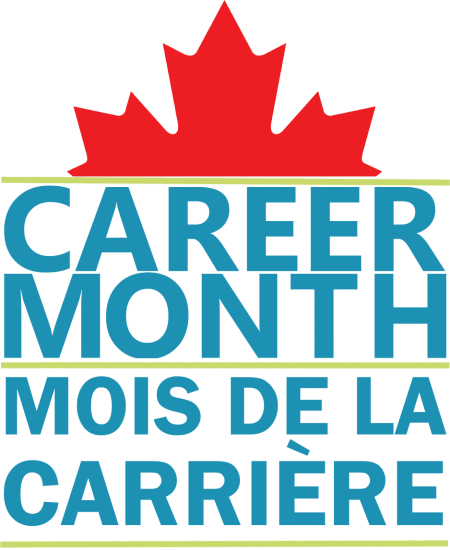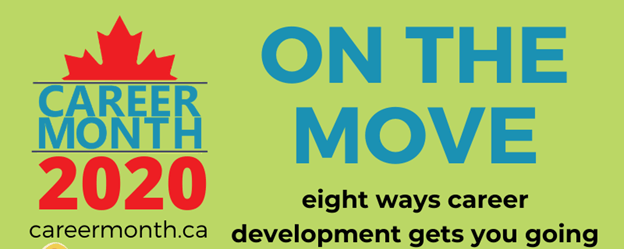Eight considerations for your career
Career contributes to mental, social, and physical health—and careers are changing at record speed. So how can you take ownership of your career during this time of rapid change?

November is Canada Career Month, making it a good time to pause and reflect on your career.
Your career, and the development of your career, require both planning and agility as you take intentional steps toward managing your career and education plan.
The theme of this year’s career month is #OnTheMove (#Enmouvement), which focuses on the importance of moving forward when you face challenges and transitions.
#CanadaCareerMonth (#Moisdelacarrierre) offers eight considerations for your career.
1) Keep an open mind
Career development helps you move forward in meaningful and sustainable ways and build resiliency. According to Planned Happenstance Learning Theory, and as articulated by J.D. Krumboltz, managing your career and education plan requires keeping an open mind and applying curiosity to explore new learning opportunities by following up on opportunities that result from chance events.
2) Start with what you know
You don’t need to have all the answers before taking the next step in your career. You can start with what you know including your values, interests, and preferred skills, and embrace the unknown. It is about being persistent in a time of uncertainty.
3) Be flexible
Rather than let setbacks keep you from moving forward, remember to simply put one foot in front of the other and explore opportunities that come your way. Be flexible. For instance, perhaps you registered in an accounting course hoping to become an accountant and then you discover that you don’t actually enjoy accounting. Rather than let that derail your education, look at the courses that you enjoy and where you consistently earn high marks and continue exploring that subject.
4) Know yourself!
Increasing your self-awareness is a door opener when you are clear about who you are and what you want to accomplish. When you take time to build self-knowledge, you can be more confident in who you are and what you have to offer to employers.
5) Seek out new possibilities
Career development helps open your eyes to new possibilities and see opportunities that you did not previously see. When you pursue new opportunities and find those actions pay off, that will increase your self-confidence and optimism, inspiring further curiosity and openness to learning opportunities.
6) Build relationships
Building relationships and networks is very important for career development. By building relationships and a network, you can share information, inspire others, and share opportunities.
7) Find your strengths
With the support of career development theory, you can become clear about your strengths. Knowing your dependable strengths and preferred skills is critical to positioning yourself for success.
8) Take calculated risks
Like most things in life, taking calculated risks can pay off particularly when you encounter unexpected new events. For example, having an interview for a job which you do not feel is a good match with your strengths and skills may result in a positive outcome. The outcome may not be a job offer but rather another job lead, or at the very least valuable interviewing experience.
In summary
Career development teaches you how to be resilient and build hope through all of life’s ups and downs. With the support of career development, you can switch gears, apply your skills in different situations, and adapt your personal brand to meet labour market needs.
If you wish to explore your career and education plan further, book an appointment with counselling services by filling out this request for assistance form.
